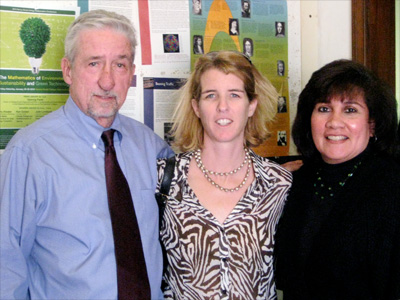 College students want to change the world. Tom Hayden, visiting professor at Scripps College, knows the feeling well. In his twenties, he made trips to Vietnam with then wife Jane Fonda, boycotting America’s role in the war. He was later charged and indicted with conspiracy as part of the Chicago Eight in the 1968 Democratic National Convention. Most recently, he has continued to work in politics, lending his voice to the Democratic Party, animal rights, and environmental reform.
College students want to change the world. Tom Hayden, visiting professor at Scripps College, knows the feeling well. In his twenties, he made trips to Vietnam with then wife Jane Fonda, boycotting America’s role in the war. He was later charged and indicted with conspiracy as part of the Chicago Eight in the 1968 Democratic National Convention. Most recently, he has continued to work in politics, lending his voice to the Democratic Party, animal rights, and environmental reform.
This spring semester, he brought all of his experience to his class, “Street Gangs and Criminal Justice.” With class trips to Homeboy Industries headquarters, guest speakers, and movies, the course was a dynamic approach to learning the issue, proving that it was not merely a topic to be studied in textbooks, but one very much alive in the real world.
“The gang issue helps students relate to this issue of the Other. The Other is always demonized as a super predator, a scapegoat who has no relation to yourself,” said Hayden.
Professor Hayden went back on the topic of the super predator during several class sessions, citing research and legislation that is shaped after the middle class’s assumptions of gangs and the lower classes. This assumption, or the premise of the super predator, argues that 6% of people at birth are destined to be super predators, and nothing — neither jobs, nor mentors — can do anything to intervene in the lives of this 6%. Nothing except lifetime incarceration, that is.
“A lot of things are believed so deeply. If you’re driven by a belief that punishment is good and necessary, you’ll look for an argument that enforces that,” said Hayden.
The United States currently has more people behind bars per capita than any other country in the world precisely because of the assumption of demographic destiny or the super predator theory. But addressing the solution can prove just as difficult as addressing the problem.
“It’s hard to separate the research from the politics,” said Hayden “Students tend to believe there are underlying causes that you can address. I have the feeling that they didn’t like the argument they heard today.”
But perhaps disentangling the web of data from belief, assumption from reality, and realizing that there’s more to it than meets the eye is the best first step to the solution.
Professor Hayden is no stranger to the Claremont Colleges; he taught at Pitzer College starting thirty years ago. Nor is he new to the subject. He has researched and published on the history of street wars and gang violence and continues to work on trial in defense cases.
“Do you live behind walls of privilege, scared of the Other?” said Hayden. “The class is about exploring issues of racism and inequality — I know students want to make a difference in the world.”

